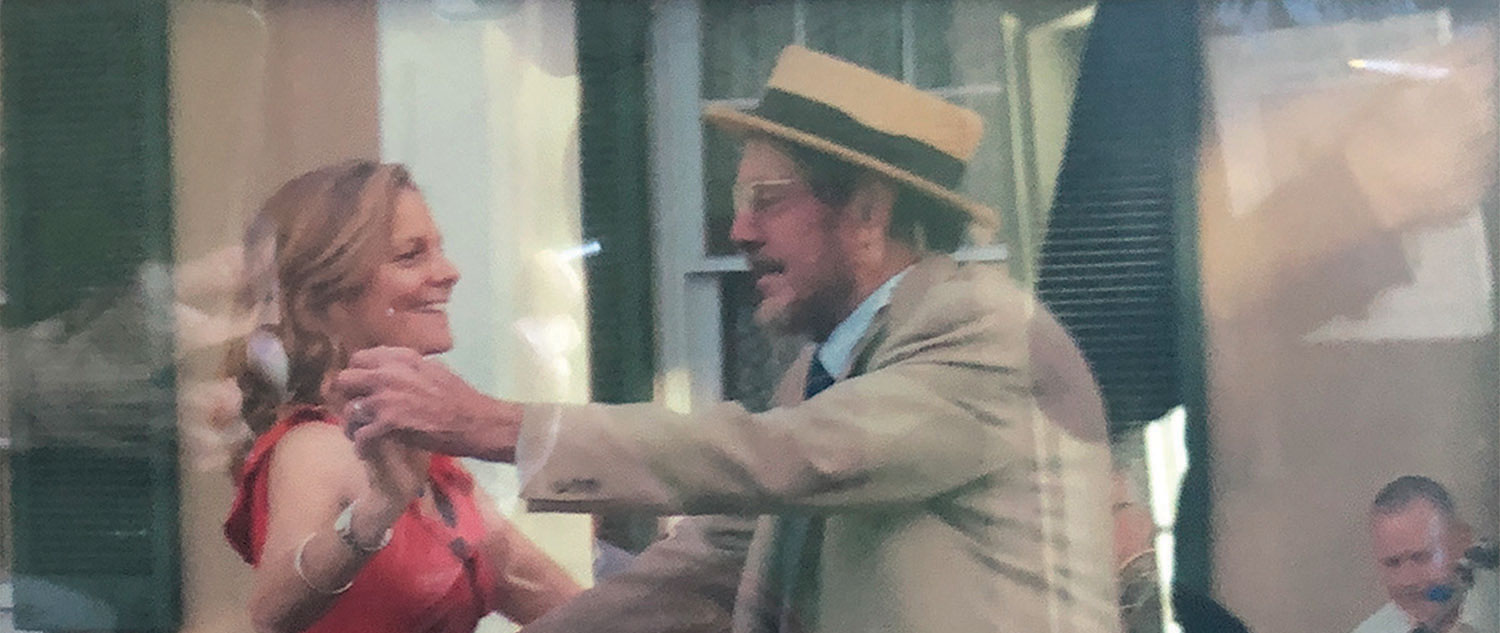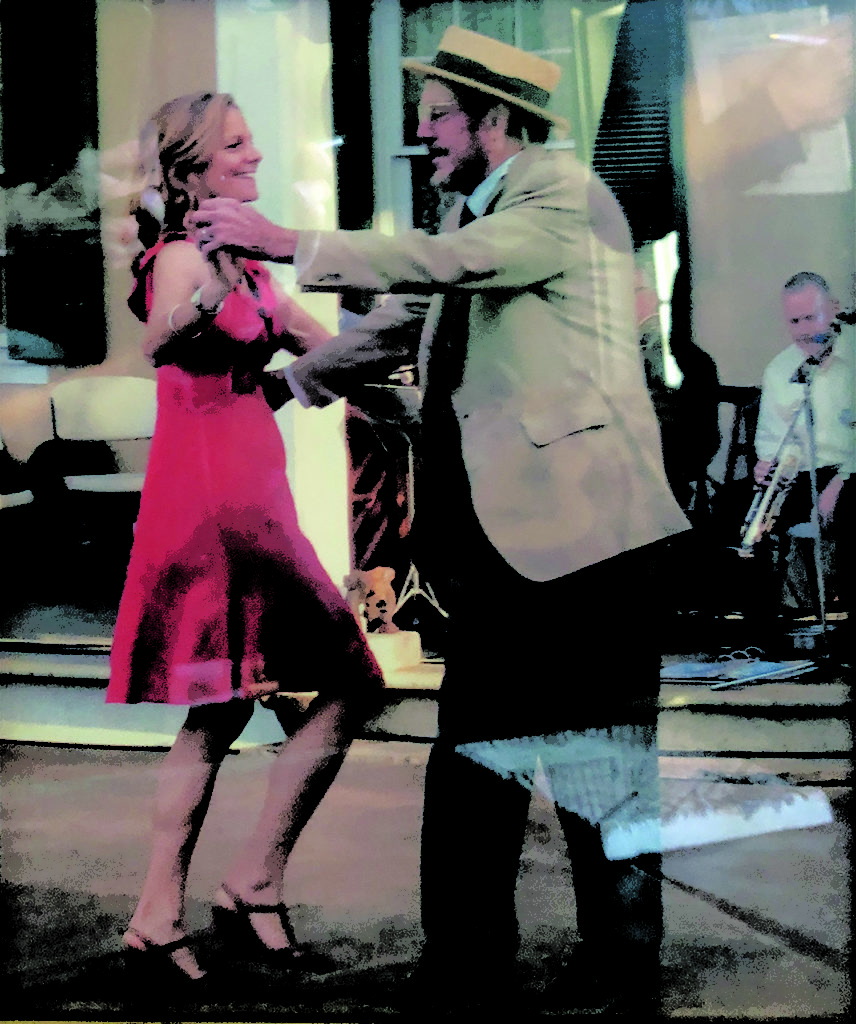Nat Morison: The Man, the Legend of Welbourne

By Heidi Baumstark
They say legends die hard. And the legend of one Virginian surely lives on.
His name is Nathaniel Holmes Morison, III, patriarch of the family who has made Middleburg their home for centuries. That home is Welbourne, dating to 1775, listed on the National Register of Historic Places by the U.S. Department of the Interior and registered as a Virginia Historic Landmark. The home itself is a brilliant example of a late 18th-century stone farmhouse that highly evolved into a grand mansion with additions added in 1870. However, the kind of man who lived and died there is what made Welbourne – Welbourne.
Morison was the son of Holmes and Sally Morison, born in Winchester on May 28, 1936. He passed away on Oct. 10, 2019 at the age of 83 at his beloved Welbourne home, the 520-acre estate that has been in the family since the 1830s, now going on eight generations.
Known for his eccentric ways, his daughter, Rebecca Dulany Morison Schaefer, said what really stood out was: “He was a man of integrity, honesty, and a man of his word.”
Rebecca Dulany Morison
He was also a loving husband for 43 years to his wife, Sherry Weymouth Morison. “Pop was devoted to her,” Schaefer said. “Every summer Sherry went up to New Hampshire and he would be a little lost until she returned. She was an amazing wife, an unwavering caregiver. She has never been a ‘stepmother’ to me. She and I are so close.”
Morison was raised in New York City, spent summers in Virginia, and earned an English degree in 1958 from the University of Virginia. He did a full year of law school but soon realized that wasn’t the path for him. “He would say it’s the person with the best lawyer who wins,” Schaefer said. In 1959 at the age of 23, he came back to Welbourne and farmed cattle until the 1970s, then switched to boarding retired horses, creating a sanctuary for them up until his death. Schaefer’s brother, Joshua Morison, is taking over the horse farm operations and Sherry continues to operate the estate as a bed and breakfast.
Flipping back pages of the family’s past, Morison was the great, great grandson of another legend: Loudoun native Col. Richard Henry Dulany, C.S.A. (1820-1906). During the 1861-1865 Civil War, he survived several wounds and served until the war’s end rising to the rank of colonel of the 7th Virginia Cavalry. Civil War-era visitors included Confederates Jeb Stuart and John Mosby. It was John Peyton Dulany—father of Col. Richard Henry Dulany—who bought the Welbourne property in 1833 and named it after his wife, Mary Anne DeButts, who was born at “Welbourn Hall” in Lincolnshire, England. “And that’s where the naming of Welbourne in Virginia began,” Schaefer explained.
Twenty-one years before the war, in 1840, Dulany founded the Piedmont Hunt (now known as Piedmont Fox Hounds), which is the nation’s oldest fox hunting group. He also founded the Upperville Colt and Horse Show—America’s oldest horse show—first held in June 1853. Following in the colonel’s steps, Morison’s profession revolved around horses.
Morison had several passions. He was a New York Mets fan, enjoyed a good game of stickball, valued historic preservation, and was a lover of jazz that took him often to visits to New Orleans, known as the birthplace of jazz. And his funeral on Oct. 25 was a clear reflection of the jazz he treasured, complete with a marching jazz band, plus a bagpiper playing traditional Irish melodies on Welbourne’s familiar front porch.
And hundreds came. About 500 family, friends, and musician comrades from all points of the nation—New York City, New Orleans, Vermont, California—gathered to pay tribute to this legend they loved.

“Pop actually wrote his own funeral program about 10 years ago; he knew exactly how he wanted it to be, including readings and songs played by a New Orleans jazz band,” Schaefer said. Prayers and psalms were read by his brother-in-law, Rev. Richard Weymouth and family friend Right Reverend Martin Townsend.
“It was a true reflection of him,” said Schaefer. “It was so moving and incredible.” Family friends stepped in and did things out of love; one hand-dug his grave, another built his pine casket. “Pop wanted a horse-drawn open wagon with his pine casket, which was built by family friend, Josh Winder.” The casket was drawn by a Cleveland Bay horse, Col. Dulany’s favorite. Pall bearers were Morison’s two sons, Ames Morison and Joshua Morison, and four nephews, Beal Jacobs, Holmes Jacobs, South Morison, and Dulany Morison.
After the service, family members and some guests drove along the dirt road to the stone-walled family cemetery where Col. Dulany is also buried. After the casket lowered, the band played a lively version of Over in the Glory Land. Afterwards, “We came back here and had a celebration with Manhattans made with Pop’s favorite bourbon: Virginia Gentleman,” Schaefer added. “The thought was after the burial, it’s time to celebrate. It’s the New Orleans way.”
Other tidbits about Welbourne include the 1930s when American authors F. Scott Fitzgerald and Thomas Wolfe stayed there and published stories using the house as a setting. It was also in the 1930s when Morison’s grandparents opened Welbourne as a bed and breakfast, taking in paying guests by “introduction only.”
Then, there was the Goose Creek Jass and Ragtime Society’s annual Stomp and Cakewalk celebrations that became tradition since Morison formed the Society in 1974. It was a big part of Morison’s father’s (Nathaniel Holmes Morison, Jr.) life, who introduced jazz to his son.
In 2001, the movie “Crazy Like a Fox” was filmed at Welbourne. Richard Squires rented a cottage on the farm, wrote the screenplay, and directed the film. “He wrote it because he thought my father was such an eccentric person,” Schaefer said.
An advocate of historic preservation and tradition, Schaefer said her father instilled an appreciation for history, heritage, and a love of Virginia. Jennifer Worcester Moore, president of Mosby Heritage Area Association (MHAA), met Morison on several occasions. “He was a huge MHAA supporter, and his nephew, Dulany Morison, is chairman of our board. When I knew I was going to work at MHAA in 2012, I wanted to experience an authentic culture of this community, so I stayed at Welbourne for a night. “Nat held forth by his fire, and it was clear as we talked, that he viewed his family home as a sort of public sphere—open for Mosby Heritage Area to use for adult history programs, tour stops, horseback rides, and school programs. He wanted to share his home so history could be accessible.”
Dulany Morison said of his Uncle Nat, “He was the patriarch of our family, the backbone of our traditions. We were very close; he was like a second father to me. The loss has been difficult to process, but I take solace in knowing that he lived his life to the fullest, on his own terms to the end.”
“Nat cared deeply about PFH and served on our board,” said Tad Zimmerman, Joint Master of Piedmont Fox Hounds (PFH). “He was a generous steward of the land, but he never fox hunted.” He also opened Welbourne for regular hunt breakfasts.
Then there were other people with whom he shared Welbourne with, including Tobin McGregor and his wife, France Bognon, who lived in the cottage in front of Welbourne. “The cottage was originally the greenhouse when Nat’s grandparents were there,” McGregor said. “At the time in 2005, I was living in D.C. and was playing polo out here several days a week. I had heard about Welbourne; it’s an institution around here. Living there changed my life.”
“Living at Welbourne was my first experience in the south,” Bognon said. “I remember in 2007 there was a Civil War reenactment on the front lawn. Welbourne is a unique breed; people who go there love it for what it is. Nat’s presence is what made Welbourne.”
As a bed and breakfast, Welbourne is known more from word-of-mouth, making it even more special. “It’s real. The beauty of the house, the people who were there,” McGregor said. “Then there were stickball games every Sunday night. It’s what you play in New York City. At “mandatory cocktail time,” men wore coat and tie and there was never foul language in the house; true Virginia gentlemen. To keep the memory of this place alive, McGregor commissioned a painter to paint Welbourne, including the cottage in front.
Morison said of his late uncle, “It’s still hard for our family to picture life at Welbourne without him, but we will continue following his lead by celebrating the pleasures of life and upholding the traditions that have sustained our family.”
Schaefer added, “How is it that he had hundreds of people at his funeral? He was a self-proclaimed cranky, cantankerous curmudgeon. But he was charming and adored by many. That’s the making of a legend.
More information about Welbourne, located at 22314 Welbourne Farm Lane, can be found at www.welbourneinn.com or 540-687-3201. ML
This article first appeared in the December 2019 issue of Middleburg Life.


